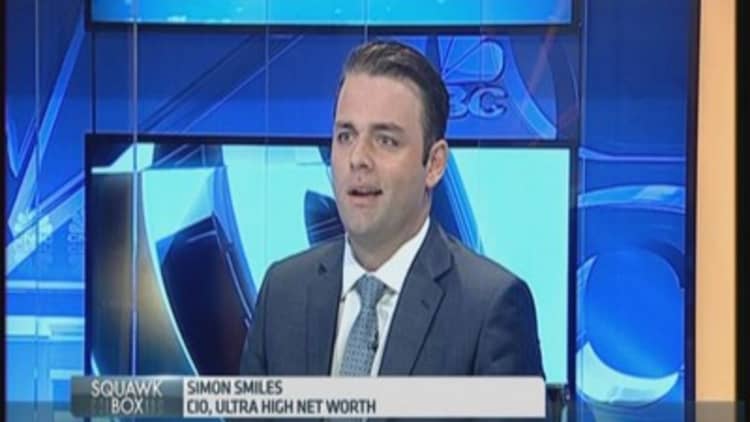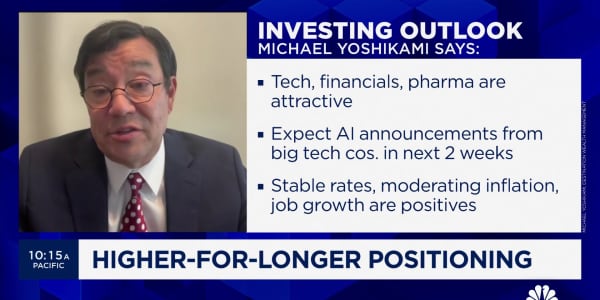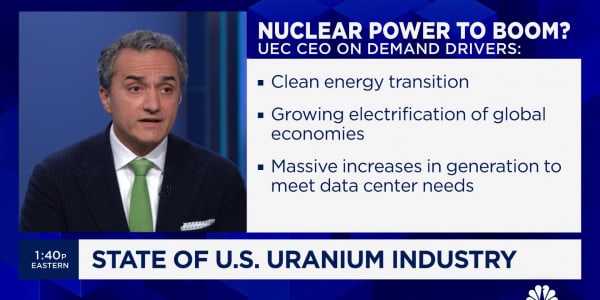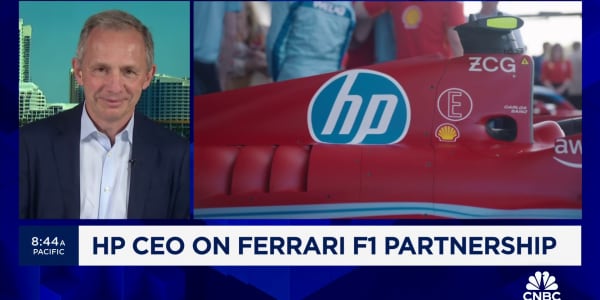Nervous about stock prices being too high, bond yields being too low and cash doing nada? Then hedge funds may be right for you.
That's the pitch investors in the asset class are giving to their own clients—even as the average hedge fund manager underwhelmed in 2014 with a 4.21 percent average return, per HedgeFund Intelligence.
"We think hedge funds going forward make a lot of sense in the portfolio given how equities and bonds have traded over the last several years," Robert Duggan, a portfolio manager at $12.5 billion SkyBridge Capital, said in a recent video to accompany a white paper this month, "Why Investors Should Allocate to Hedge Funds."
Top three picks
Read More 'Disappointed' investors still love hedge funds
Investors in hedge funds—"limited partners" or "LPs" in the industry lingo—generally like three types of strategies for the new year, according to 2015 outlooks from top allocators.
First are managers who can make money in the stock market no matter which way it goes, so-called market neutral funds that keep their bets for and against stocks roughly in balance. Second are those that can take advantage of the likely continuation of corporate dealmaking, so called event-driven strategies. Third are "macro" funds that bet on macroeconomic trends using stocks, currencies, bonds and more.
SkyBridge, for example, has its highest conviction in event-driven managers, who try to benefit from corporate shake-ups such as mergers and acquisitions, leadership changes and so on.
"Corporate balance sheets, particularly in the U.S., remain very strong and we continue to see very accretive deals being done which is a positive and provides significant opportunity for those types of managers," Duggan said.
He also noted that the firm continues to like investors in mortgage-backed securities and other bonds backed by consumer payments, a relatively defensive position if stocks fall.
The SkyBridge Multi-Adviser Hedge Fund Portfolio (Series G) rose 3.88 percent in 2014 and has gained an average of 11.3 percent over the last five years as of Nov. 30, 2014. That longer-term record compares to 3.39 percent for all hedge funds, according to data tracker HFRI, and 15.96 percent for the S&P 500 index.
Top allocations by SkyBridge are to funds run by merger-focused John Paulson (Paulson Partners Enhanced); event-driven investor Dan Loeb (Third Point Ultra); mortgage pro Clay DeGiacinto (Axonic Credit Opportunities); and activist investor Barry Rosenstein (Jana Nirvana), according to a recent public filing.
Read MoreHedge fund managers swarm Davos
hedge fund unit also likes the market neutral approach.
"Consensus for U.S. equity market returns is modest, with risks more to the downside, so low net exposure makes sense," Kent Clark, head of alternative investments and manager selection at $26.4 billion fund of funds Goldman Sachs Asset Management, wrote in an Absolute Return outlook piece this month.
Equity market-neutral funds are also the top pick from Deutsche Bank's wealth management unit. The bank also likes regular stock-picking "long-short equity" hedge funds, which tend to be biased toward a bull market, event-driven funds and macro managers.
Deutsche Bank is less bullish on "distressed" hedge funds that pick over the bonds and stocks of companies in financial trouble. They are also "neutral" on credit and managed futures investors.
Investors also like macro managers despite tepid performance over the last few years.
"We believe that the environment looks set to continue to be fruitful," Anthony Lawler, portfolio manager at GAM's $5.7 billion Alternative Investment Solutions unit, wrote in a recent commentary piece.
Lawler said he likes macro because of the difference between tightening monetary policy in the U.S. versus increased stimulus in Europe, Japan and even China, which may provide trading opportunities in currencies and interest rates.
Maco managers may also find relative value trades in equities, credit and other risk assets "as economic data points and energy prices continue to support the view that U.S. growth is reasonably strong and Europe is avoiding further deterioration," Lawler wrote.
Morgan Stanley also likes macro managers.
"We expect macro funds to benefit from increasing differentiation in economic policy across both developed and emerging markets," Jarrod Quigley, managing director of Morgan Stanley Alternative Investment Partners, which manages a $17.5 billion fund of funds business, wrote in an outlook published by Absolute Return.
More money coming

Hedge fund managers, for their part, expect more money from investors.
A recent survey of 235 hedge fund executives by State Street found that 63 percent expect institutional investors will increase their exposure to hedge funds; the figure was 65 percent for high net worth individuals and 55 percent for pension plans.
Those investors seem to concur with firms like SkyBridge, Goldman Sachs and Deutsche Bank on the top strategies: event driven, macro and equity market neutral were the most popular types of funds and will likely see higher allocations, per a recent survey of about 450 investors by Barclays prime brokerage unit.







